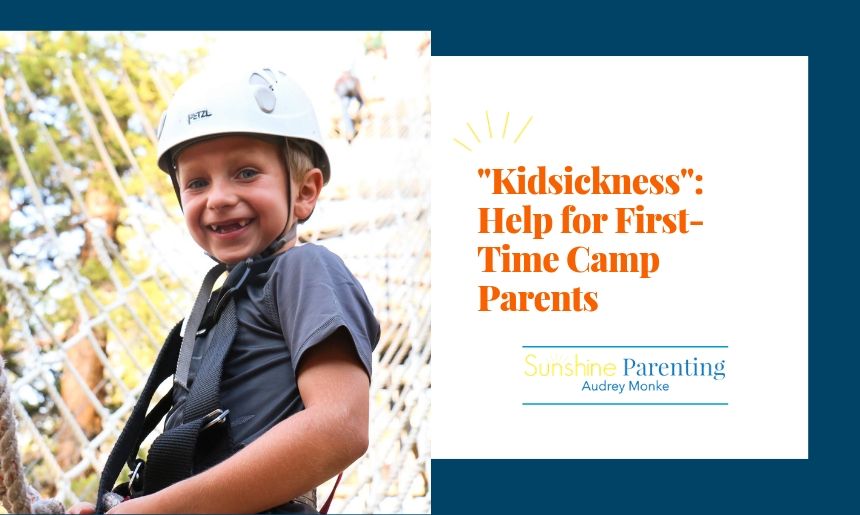Who’s REALLY not ready for camp?
Usually, parents say it’s their kid who’s not ready, but in my experience, the kids are raring to go, and it’s the parents who aren’t ready. After spending the last three decades at camp having fun with the campers, and talking to their anxious parents at home, I’m certain the first time camp experience is harder on parents than it is on kids!
When a child goes to resident camp for the first time, a lot of talk revolves around “homesickness,” the common term for the well-known phenomenon of missing home and parents. Much has been discussed in camp literature about the prevention and treatment of homesickness. What has not been addressed is the emotional toll a first-time camp experience takes on parents. In most cases, the first-time overnight camp experience is harder on parents than it is on their child.
According to Sara Kuljis, Owner/Director of Yosemite Sierra Summer Camp), “First-time campers find themselves in a fun, exciting environment. They have little time to miss home when they are meeting new friends, experiencing new successes, and having the time of their lives. Parents, on the other hand, are often at home missing their child, worrying about how they are doing, and figuring out how to fill time that is normally spent focused on caring for their child.”
“Kidsickness” refers to the emotions some parents feel when they experience their first long separation from their child, which often is a stay at a traditional summer camp. Some parents adjust easily to having their child away, while others struggle with sadness and anxiety while their child is at camp. Here are a few helpful tips for first-time camp parents to help fight off “kidsickness”:
Keep in Touch
Most camps offer the ability (via their website) to view daily photos and news from camp. This is a great way for you to see what is going on at camp, and it may help you relax to see your child and other campers having fun. It’s also reassuring to know what your child is doing at camp. When you write your child letters and emails, you can mention things you see going on at camp, such as special events, activities, and outpost trips.
One special thing about camp is that it is one of the only places where children and parents exchange hand-written letters. Campers love receiving letters and postcards from home, so be sure to keep a steady stream of mail coming to your camper. Let friends and relatives know your camper’s address at camp, so they can send mail, too! While is it difficult for parents to go for two weeks (or longer at some traditional camp programs) without hearing their child’s voice on the phone, remember that the independence your child is gaining is invaluable. Letters you receive from your child while they are at camp may be some of the only written memories you will have from their childhood. Save them!
Remember the Benefits
“ A quality camp experience provides our children with the opportunity to learn powerful lessons in community, character-building, skill development, and healthy living.”
– Peg Smith, Chief Executive Officer of the American Camp Association
Why did you decide to send your child to camp in the first place? Remembering the many benefits your child will gain from the experience (independence, a break from electronics, fun, relaxation, and new friendships) will make the separation easier and remind you of the gift you are giving your child by allowing them to have this experience.
“My shy, quiet nine year old went to Gold Arrow Camp not knowing a soul. Two weeks later, she came home transformed. She blossomed. She made friends, learned a multitude of activities, felt safe, loved, confident, and happy, really, really happy. As hard as it was on me, it was all worth it for her. It was the single best thing I have ever done for her.”
-First-Time Camp Parent
Stay Busy & Take Care of Yourself
Many parents spend their child’s first camp session glued to their computer, waiting for photos to be uploaded. While looking at photos regularly is encouraged, it’s also important to take your child’s camp time to have some quality experiences yourself. While your child is at camp, it’s a great time to do projects and trips that are not kid-friendly. Take the time to treat yourself to some fun, friends, and growth while your child is doing the same at camp!

